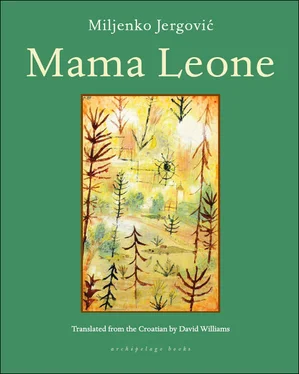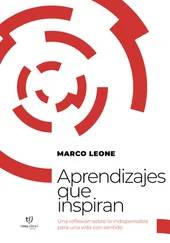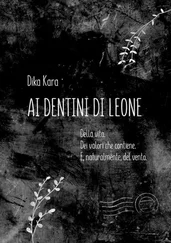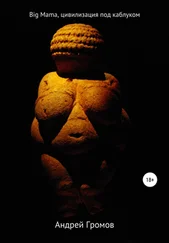Boris, let me introduce you! Mr. Big had a firm handshake, the kind of firmness you learn at a good preparatory school, where hands never tremble, show neither weakness nor excess familiarity — let alone your feelings, which just evaporate, as much a waste of time as this same lack of feeling. The kid was named after some pirate or avant-garde artist, a name definitely not pronounced the way it was written. We’ll skip the cynicism today , he thought, although in other circumstances and with other people he’d have asked them to spell it for him.
So, how are you? her whole face beaming a smile, I’m well , he had relaxed a little, and out of the corner of his eye caught Mr. Big nodding politely, though he didn’t understand a thing. Anyone watching the scene from the shadows would have thought Mr. Big was holding the kid like he was the nanny and not the father. The kid himself was silent and embarrassed.
Boris wasn’t sure about where to go. He didn’t even know how long the visit was going to last. The next ferry for Ploče was at five, when they were heading off for Dubrovnik; God, Dubrovnik — everyone who comes from abroad goes to Dubrovnik — but what to do until five, where to take them, what on earth she expected, he had no idea.
Are you hungry? he asked, though it wasn’t yet noon. She turned to Mr. Big, talking fast, Boris trying not to hear or understand anything, particularly whatever it was Mr. Big had to say, but he couldn’t avoid hearing a single word repeated three times over: dear, dear, my dear . Like in those films where it’s repeated over and over by couples that start fighting the second they’re left on their own. Nothing’s like it is in a film , he thought and now nodded his head. They’d grab something to eat after all. Mr. Big has to try Adriatic fish. You don’t get that stuff in the north. They only eat those gigantic Japanese monsters, tuna and herring, their whole lives they never see anything fish-shaped on their plates.
The restaurant was called The Long Line. There were three chairs on each side of the table. Boris sat down, Maja, the kid, and Mr. Big across from him. It was just like at the theater, only you didn’t know which side the audience was on. Boris gave his all in making conversation, and she, not noticing anything or noticing everything — that’s not for the telling here — babbled on and on, one minute about what they did yesterday, the next remembering her time with Boris, everything always shot through with laughter and happiness. There was no sadness for her, and you could see she was happy about their reunion. Mr. Big spoke softly to the kid, raising his head and silently smiling every now and then, not a trace of unease. He was one of those people you could spend twenty years with, head off to war with, travel and live with, without ever catching him off-balance, or wanting to tell you where it hurt. When this sort of guy asks you how you are, you’ve got to tell him you’re great because if you say anything else, you start bullshitting or admitting you’re not well or something, he’ll think you a lower being or just plain rude, horrified at the thought he might have to help you out.
Maja hadn’t aged. You’d never guess you’ve had a kid! he said and already knew he should have said something else. For a flicker of a second she seemed sad and afraid. She knew him well enough to know he never said things like that, and that if he did, there was a kind of darkness there, a darkness from which she’d escaped in the nick of time, so maybe the fear and sorrow never actually reached her, maybe her nerves didn’t transmit the message to her brain, it had all just hung there on her face. No, really, you look great , he healed the damage, and she kicked off about childbirth there in the north, about their exercises and routines ( like we don’t have that stuff ), the psychologists to relieve every fear, their pain-free delivery methods ( God, like she lived here in the last century ) that sent a woman home brand new. It was a completely new and miraculous experience for me. . We’re not thinking about repeating it for the time being. . But who knows what time might bring . . Boris took a cigar out and lit up. He wanted to delete everything he’d heard. The content didn’t matter, that was all extraneous and easily forgettable. It was the syntax that got him, it wasn’t her own; it wasn’t even the syntax of their mother tongue. Hers were translated English sentences, where everything that should have been in the middle had unerringly been pushed to the end. He didn’t actually know whom he was talking to: Maja, with whom he had spent three years, whose murmurs, intonation, faulty accents, and syntax he knew and loved, or a person resembling her, actually, a replica who had stolen Maja’s life experience and appearance, translating her words from a foreign tongue, a language in which everything important came at the end, after every sentence and every story was over.
The waiter brought the fish, a giant oval silver platter laden with whole fried fish. Whooaaaaaa!!! Mr. Big rumbled like a hurricane. The kid looked on in fear at food he had never seen in his life, probably thinking that someone had hurt the fish terribly and that it was wrong they now eat them. Maja clasped her hands together and mouthed the kind of pathetic sentence typical of people on their first brief visit home in years, seeing in dead fried fish their homeland incarnate. This sort of shit made Boris sick and for the first time he felt like a man who hadn’t gotten over a woman. He didn’t care about Mr. Big or the kid, but that messed-up syntax was like watching his girl making love to another man and her going to town on it.
He just wanted Maja to shut up, to speak in their language, to eat the fish, take the bones out, feed the kid, smile at Mr. Big, smile at him, smile at whoever she wanted, anything but those insufferable sentences. His love, somehow, had finished up as language instruction.
What kind of fish is it? she asked. It was orada , but how do you say orada in English, because she wants to translate it for Mr. Big. But does she really think orada exists in English? Maybe Latin would help, but who knows how you say orada in Latin, we’re not ichthyologists, no one here’s an ichthyologist, just let it be orada , a nameless fish hidden in a lost language. It’s not that important, you don’t have to know everything, some things can be forgotten, and language, well, today it’s a faithful reflection of experience, what doesn’t exist in life doesn’t exist in experience, you don’t get orada in the north, so it doesn’t have to exist in words.
Boris ordered a bottle of wine, they don’t want any, but he does. He’s dying for a drink. He empties a glass, stretching his bottom lip over his top one, smiling at Mr. Big who was frowning for the first time, pricked by a fish bone, ha, what do you expect from a savage country and language. Maja was feeding the kid, murmuring strange words, all of them finishing with an o . She didn’t pay the men any mind. She was a mother now, fully concentrated on a role that had absolutely no connection with Boris’s life. The scene was one free of pain, so foreign that had it occurred at some other time, he could have even tried to enjoy it.
He made no attempt at conversation with Mr. Big, and he, who knows why, didn’t ask any questions. God knows who she told him I was , thought Boris, if I’m just a good friend it’s weird he’s not asking me anything, and if I’m what I am or once was, what’s with the dumb grinning innocent act? Actually, Boris couldn’t care less. Nothing life-changing was going to happen, and any awkwardness had been avoided. He watched Mr. Big, the pinkish hairy fingers struggling with the fish skeleton, the hair on his fingers blond at the base and brown at the tips, God, how did she get used to that, to skin devoid of pigment, which no matter the weather could only go red, a red-white color combo its only possibility, like the Red Star Belgrade flag, like scampi, like beetroot. Had she gotten used to this stuff before she started messing up her syntax, or was it the other way around, so she didn’t need to get used to it, love had just blossomed overnight, one love for each life, one after every war, one in every peace, because then you could say you had been completely faithful, like you had lived in some old catechism, like in a fairy tale, until death, language, or fate did you part. The hairy fingers were fish-clumsy, mashing its skeleton, pulverizing it until all that remained were tiny piles of dead bones you would never guess had once been a fish. It could have been something else, tiny icicles, the twigs of an arctic tree, something Boris didn’t recognize was born beneath those fingers. The imagined tendernesses with the body he once knew now belonged to those fingers, and even they seemed like Chinese symbols, outside any experience. If he’d seen those fingers on video, touching Maja’s body, he wouldn’t have recognized the scene, wouldn’t have known what he was watching, what those fingers did with the fish so impossibly foreign.
Читать дальше












